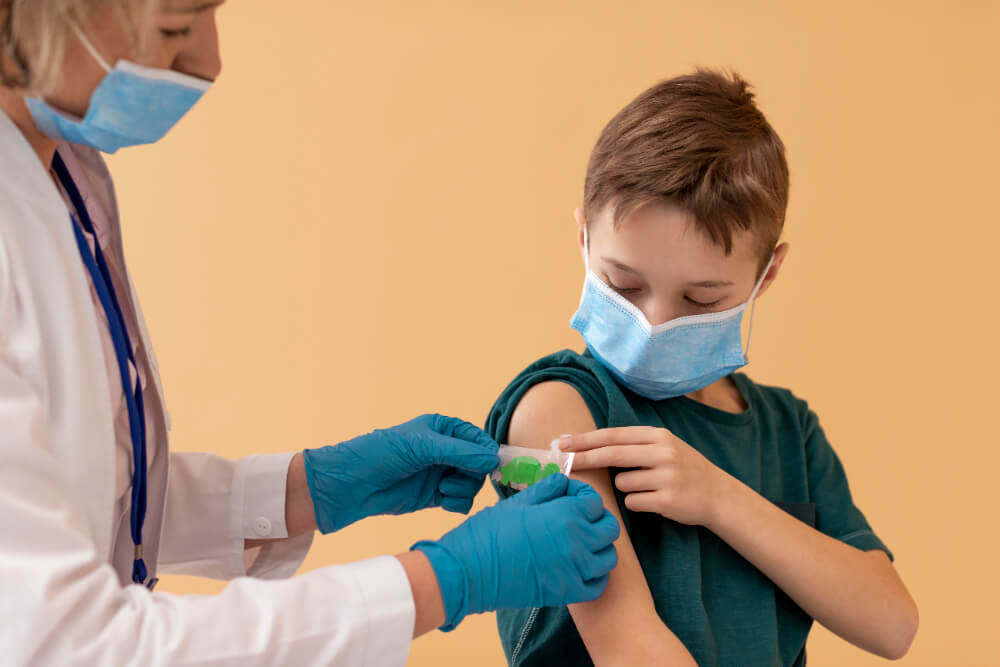Your Child’s Health: The Importance of Vaccination Services at a Pediatric Clinic
Vaccinations are one of the most significant public health achievements of the 20th century, dramatically reducing the incidence and impact of many infectious diseases. Pediatric clinics serve as a crucial hub for childhood immunizations, providing a safe and comfortable environment for children to receive the recommended vaccines according to the recommended immunization schedule.

The Role of Pediatric Clinics in Childhood Immunizations
- Comprehensive Immunization Services:
- Offering a wide range of childhood vaccines, including routine vaccinations, as well as vaccines for specific diseases based on individual needs and travel history.
- Developing and Implementing Immunization Schedules:
- Creating and implementing personalized immunization schedules based on the child’s age, health history, and any potential contraindications.
- Administering Vaccines Safely and Effectively:
- Ensuring safe and effective vaccine administration by trained and experienced medical professionals.
- Monitoring for Adverse Reactions:
- Closely monitoring children for any adverse reactions to vaccines and providing appropriate care if necessary.
- Addressing Parental Concerns:
- Addressing parental concerns and misconceptions about vaccines, providing accurate and reliable information based on scientific evidence.
- Promoting Vaccine Awareness:
- Educating parents and caregivers about the importance of immunizations and the benefits of vaccination for their children.
- Maintaining Vaccine Records:
- Maintaining accurate and up-to-date vaccination records for each child.
Services Offered by Pediatric Vaccination Clinics
Pediatric vaccination clinics are specialized healthcare facilities that focus on immunizing children while providing comprehensive support to families. Below are the core services they offer:
Immunization Scheduling and Administration
Pediatric clinics maintain up-to-date immunization schedules based on guidelines from health authorities like the CDC and WHO. They ensure:
- Timely administration of vaccines according to age-specific schedules.
- Combination vaccines to reduce the number of injections per visit.
Catch-Up Immunization Programs
For children who have missed vaccines due to various reasons, clinics offer catch-up immunization plans. These personalized programs help children get back on track without compromising safety.
Pre-Vaccination Consultation
Before administering vaccines, pediatricians provide consultations to:
- Assess the child’s medical history.
- Identify any potential allergies or contraindications.
- Address parental concerns and questions about vaccine safety and efficacy.
Post-Vaccination Monitoring
After vaccination, clinics monitor children for potential side effects, offering immediate care if needed. This ensures parents feel reassured and confident in the vaccination process.
Educational Resources for Parents
Pediatric clinics often serve as educational hubs, providing parents with:
- Informational materials about vaccine-preventable diseases.
- Guidance on managing mild post-vaccine reactions like fever or swelling.
- Updates on newly available vaccines.
The Importance of Following the Recommended Immunization Schedule

Following the recommended immunization schedule is crucial for several reasons:
- Protection Against Serious Diseases:
- Vaccines protect children from serious, potentially life-threatening diseases, such as measles, polio, whooping cough, and meningitis.
- Herd Immunity:
- When a high percentage of the population is vaccinated, it helps to create herd immunity, which protects even those who cannot be vaccinated due to medical reasons.
- Reduced Risk of Outbreaks:
- High vaccination rates help to prevent outbreaks of vaccine-preventable diseases, protecting both children and the community.
- Long-Term Health Benefits:
- Immunizations provide long-term protection against many infectious diseases, allowing children to grow and develop to their full potential.
Addressing Common Concerns About Childhood Vaccinations
- Vaccine Safety:
- Assuring parents that vaccines undergo rigorous safety testing and monitoring before being licensed for use.
- Addressing common concerns about vaccine safety, such as potential side effects and the risk of autism (which has been scientifically disproven).
- Vaccine Effectiveness:
- Explaining the effectiveness of vaccines in preventing disease and the importance of completing the recommended vaccine series.
- Vaccine Schedules:
- Explaining the rationale behind the recommended immunization schedule and addressing any questions parents may have about specific vaccines.
Creating a Comfortable and Supportive Environment
- Child-Friendly Atmosphere:
- Creating a welcoming and child-friendly atmosphere in the clinic to minimize anxiety and stress for children.
- Utilizing age-appropriate communication techniques to explain the vaccination process to children.
- Parental Involvement:
- Encouraging parental involvement and answering any questions or concerns parents may have.
- Building Trust and Confidence:
- Building trust and confidence with parents by providing clear and honest information about vaccines and addressing their concerns with empathy and understanding.
Conclusion
Pediatric clinics play a vital role in ensuring that children receive the recommended immunizations, protecting them from serious infectious diseases and promoting optimal health and well-being. By working closely with pediatricians and following the recommended immunization schedule, parents can make informed decisions about their child’s health and help protect them from preventable illnesses.
Contact our Pediatric care clinic for Vaccination services (432) 314-2028 or visit us https://tscmidland.com/
